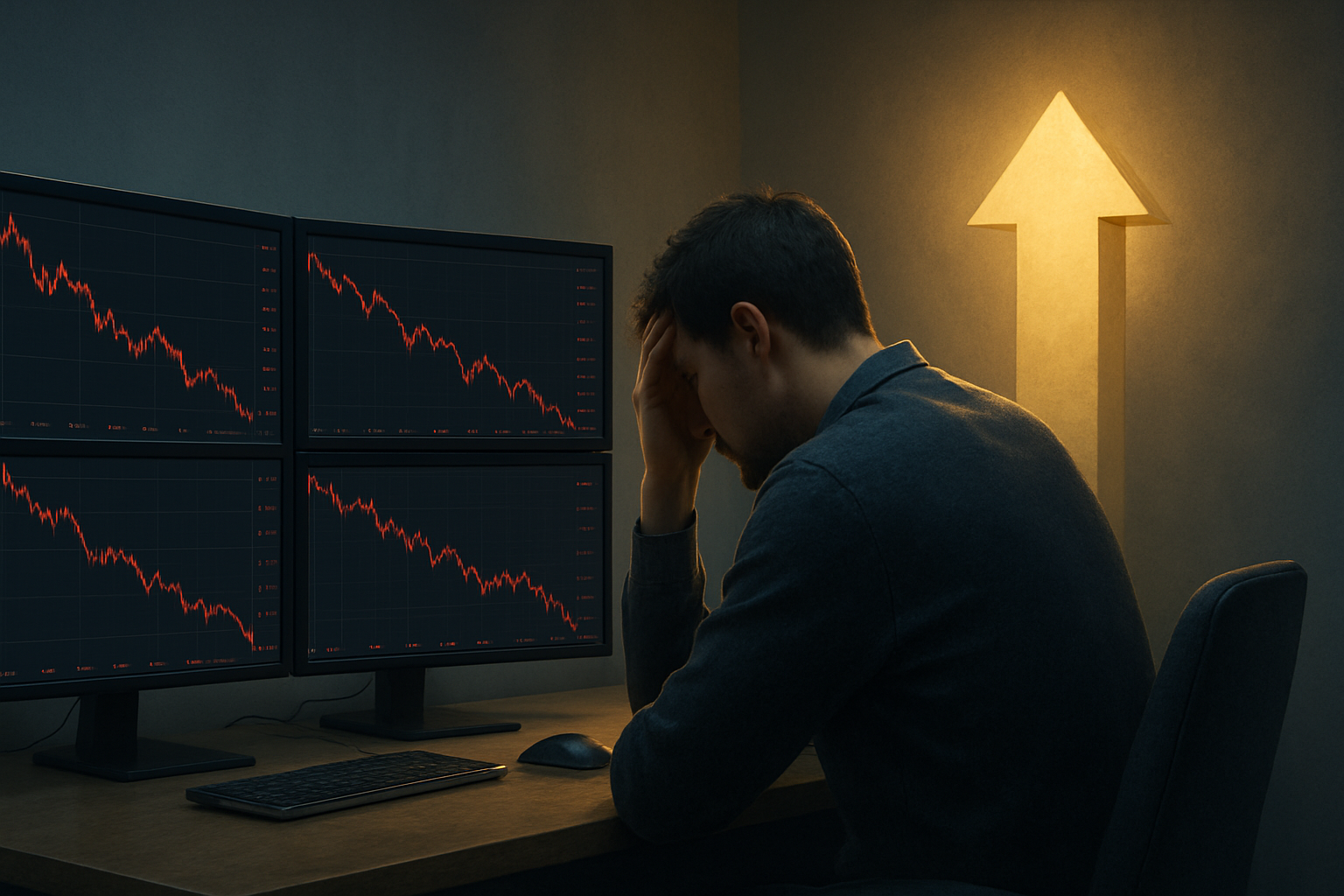In the rollercoaster world of investments, it's those white-knuckle moments—when you're clinging to positions that make everyone think you've lost your mind—that often deliver the most spectacular returns.
I've been covering financial markets for over a decade, and if there's one pattern I've noticed, it's that the most profitable investments are frequently the most psychologically devastating to hold.
It's what some investors call the "Agony Premium." The market doesn't just compensate you for risk—it pays extra for the emotional trauma you endure while everyone else is telling you you're wrong.
Financial Crisis Battlescars
Take the experience of one portfolio manager who loaded up on specialized financial stocks during the 2008-2009 meltdown. Not the obvious survivors like JPMorgan, mind you, but the deeply distressed specialists that had been abandoned by the market.
"I started buying at $12," this investor told me, describing a particular financial stock that had cratered from $60 to $4. "Then I watched it drop to $7... then $6... then $4."
Can you imagine that gut-wrenching feeling? Every morning bringing fresh news that your investment thesis is fundamentally flawed. Colleagues helpfully forwarding articles predicting bankruptcy. Your boss giving you that look—you know the one—that silently communicates: "I'm updating your performance review as we speak."
What struck me in our conversation was how vividly this person recalled the psychological warfare within. It wasn't just about the money. It was about identity.
"At night, I'd recalculate the company's liquidation value, stress-testing against increasingly apocalyptic scenarios," they said, describing what sounded like a form of financial self-torture. "I'd mutter to myself like some deranged actuarial Rain Man."
The Psychology Behind the Pain
Look, what makes these situations truly difficult isn't just watching numbers go red. It's the confluence of pressures that turn investing into an existential crisis.
There's the persistent narrative opposition—when the entire market seems aligned against your thesis. This isn't just disagreement about valuation; it's fundamental rejection of your entire premise.
Then there's what I'd call the identity factor. Hold a contrarian position long enough, and you become "the Tesla bull" or "the crypto guy" at the office. Your investment becomes fused with your professional identity—for better or worse.
And the loneliness? Brutal. One fund manager (who preferred to remain anonymous... wonder why?) described it as "investing in solitary confinement." Your conviction makes you sound increasingly unhinged to colleagues. Friends stop asking about work. Family members exchange worried glances at holiday gatherings.
The irony? This particular investor's financial stock eventually recovered to $45—a 1,000%+ return from the bottom. Yet they sold portions at $18, $27, and $35, each sale bringing what they described as "an immense relief that overwhelmed my greed."
That's the thing about these high-conviction plays that nobody talks about. Even when you're right, the psychological trauma often prevents you from capturing the full upside.
Building "Pain Memory"
Having interviewed dozens of successful investors over the years, I've noticed they all seem to have what one described to me as "pain memory"—a psychological resilience built through surviving previous market traumas.
It's like muscle memory, but for your investing psyche. The next time market adversity hits, that cellular-level memory activates: "I've felt worse pain than this and survived. I've been vindicated before."
Warren Buffett had American Express during the Salad Oil Scandal. Bill Miller had Amazon through the dot-com implosion. Almost every investing great has a formative "crucible investment"—the one that nearly broke them but ultimately defined their approach.
So while we measure returns in percentages and basis points, perhaps we should also calculate them in sleepless nights, strained relationships, and moments of existential dread. The Agony Premium is real—and might be the most reliable alpha generator in an otherwise efficient market.
After all, if holding the next 100-bagger were easy... everyone would do it. And then, of course, it wouldn't be a 100-bagger anymore.
In this business, sometimes the investments that hurt the most end up healing your portfolio the best.
